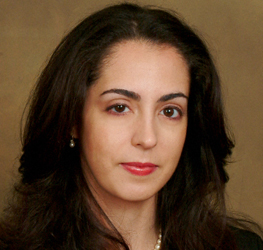By Johannes Werner*
As full normalization in U.S.-Cuba relations seems suddenly within reach, enthusiasm and a sense of rising expectations are palpable among U.S. businesses.
Philippe Leclerc, for that matter, is eager to offer his golf construction services to developers in Cuba.
“The news was a great joy and hard to believe,” says the co-owner of Stuart, Fla-based Classic Golf International LLC about President Barack Obama’s Wednesday announcement. “We cannot wait to initiate contact with clients [in Cuba]. We would like to be the first to build golf courses to American standards in Cuba. If U.S. tourists are going to flow to Cuba, the facilities will increasingly need to be up to U.S. standards.”
However, Leclerc’s plans are still two or three political steps removed from becoming reality. For one, the travel ban-easing steps announced by the White House on Wednesday seem to include all travel categories except tourism; so golf vacations on the island for aficionados from Miami or New York will not be possible just yet. But more than anything, U.S. entities providing services, let alone investing on the island, will continue to be subject to a vast body of sanctions laws and restrictions.
Leclerc is fully aware of that.
“The question now is whether we will be able to perform pre-commercial activities while the embargo is in place, to be fully operational by the time it is lifted,” he adds.
To get first answers, the Florida businessman will have to wait until next month, when one expert expects the main sanctions-watching bureaucracy in Washington to issue amended Cuban Asset Control (CACR) and export administration regulations.
“That could be as early as the first week of January, or the second week of January,” says Christopher Swift, a Washington-based associate with Foley & Lardner, and a former enforcement officer in the U.S. Treasury Department’s Office of Foreign Assets Control (OFAC).

Details such as Leclerc’s “pre-commercial activities” will be in the hands of, first of all, the OFAC lawyers who will be busy over the holidays re-writing existing regulations. The re-writing won’t be too hard because OFAC can use existing wording from Burma and similar sanctions, Swift suggests.
Then, it will be up to OFAC’s enforcement officers who implement them to tell Leclerc what his limits are, and that’s where it may get iffy. History shows there will be differences between the White House and OFAC enforcers, which will have to be sorted out with the help of your lawyer, or worse, your Congressman.
“I expect differences between what the law says and how everyone interprets it,” Swift says. “There’s a certain risk that OFAC takes a restrictive interpretation. It will be a gradual process to sort that out.”
But more than anything, the essential body of sanctions — such as the laws enshrining the travel ban — will stay in place as long as Congress resists change.
“In this case, it takes three to tango,” says Swift, who is also an adjunct professor of national security studies at Georgetown University. “It takes two to tango to get anything done in Congress. And you need two to tango to do anything on normalizing the relationship with Havana. Maybe it will be easier to dance with Cuba than with Congress.”
Whether and how much Cuba will tolerate U.S. telecommunications activities — an important part of Obama’s initiative, which may go from selling iPhones to connecting the island via undersea cables — is up to the Cuba, of course.

As Lauren Valiente, a senior counsel and litigation lawyer at Foley & Lardner’s Tampa office, puts it: “There’s no ironclad agreement on part of Cuba” to permit U.S. businesses to use the spaces opened up by the Obama administration.
“This doesn’t mean the major issues have been resolved,” President Raúl Castro said in a televised speech Friday about Obama’s embargo-easing steps. “The economic embargo, which creates a lot of human and economic damage to our country, must cease.”
Given that the incoming House and Senate will both be Republican-dominated, Swift expects even less action on that side.
“We won’t see any movement in the near-term, not in this Congress,” Swift predicts. The president “is going to ignore the second front. There will be no changes in the law.”
“In the next few weeks, the president will be dancing by himself,” Swift adds with a laugh.
Amid the uncertainly, one thing this is certain — the first boost in Cuba business will go to law firms in the United States.
“You have to take a view of distinguishing between what the headlines say and what the law says,” Swift says. “A big reason for that is, there’s going to be an enormous difference between what the president can do on his own, and what he needs to do with Congress.”
That, in turn opens pitfalls to businesses.
“That’s why you need a lawyer who knows what they’re doing,” Swift adds. “It’s necessary to not let enthusiasm get ahead of a reasonable, risk-based approach of doing things.”
All things said, Obama’s announcement sends a signal of confidence that all things Cuban can only go up.
Says golf builder Leclerc: “Once relations are normalized on the diplomatic front, there can be no more justification for the embargo to remain. So we expect to conduct business in Cuba within a relatively near future.”
*Johannes Werner is editor of Cuba Standard and CubaNews

